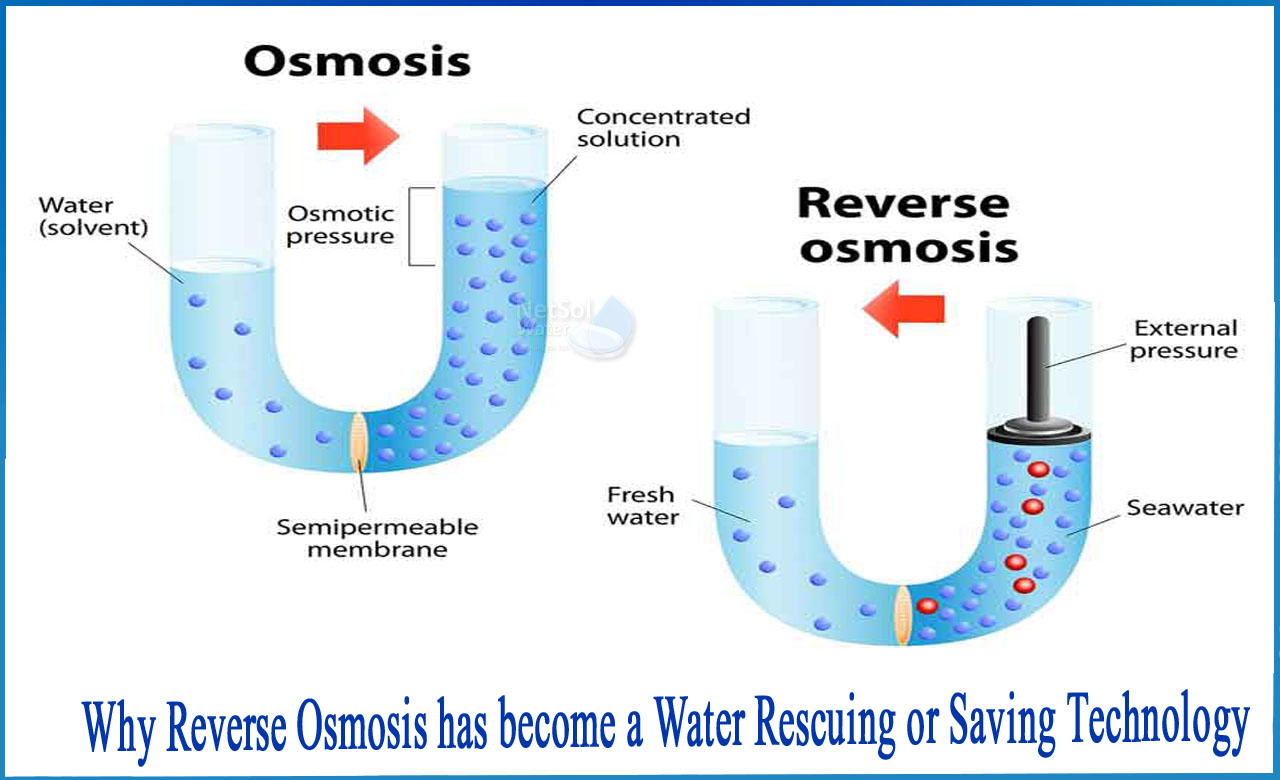What is reverse osmosis?
Reverse osmosis is a technique for removing the vast majority of pollutants from water by forcing it through a semi-permeable membrane under pressure. An applied pressure is utilized in reverse osmosis to overcome osmotic pressure, a colligative phenomenon generated by chemical potential differences in the solvent. Reverse osmosis process can remove a wide range of dissolved and suspended chemical species, as well as biological species (most notably bacteria) from water, and is utilized in both industrial processes and potable water production.
What contaminants does RO remove?
1: Reverse osmosis can remove 99 percent or more of dissolved salts (ions), particles, colloids, organics, microorganisms, and pyrogens from feed water (although an RO system should not be relied upon to remove 100 percent of bacteria and viruses).
2: Contaminants are rejected by RO membrane based on their size and charge. Any impurity with a molecular weight more than 200 will be rejected by a properly working RO system.
3: Similarly, the larger the ionic charge of the pollutant, the less likely it is to pass through the RO membrane.
Reverse osmosis is highly successful in treating brackish, surface, and ground water for both large and small flows. RO water is used in a variety of industries, including pharmaceuticals, boiler feed water, food and beverage, metal finishing, and semiconductor manufacture.
Why reverse osmosis has become a water rescuing or saving technology?
Although RO technology exists to filter even the most contaminated water supplies, they all come with a cost-in-use, while the cost of cleaning water has decreased in recent years. Reverse osmosis can remove 99.9% of all pollutants and sediments, or particles as fine as 0.001 micron, from water. Modern reverse osmosis units for the home combine membrane technology with carbon and mechanical filtering to provide highly purified, great-tasting water.
RO systems with Zero Wastage
The RO with Zero Water Wastage is a multistage purification process that promises 100 percent pure water without wasting any water. The purification method and water quality are identical in zero waste RO systems (ultrapure water). They do produce wastewater, but it is sent to be reused in your home rather than being flushed down the toilet.
They're termed "water rescuing" because the water they use (that isn't RO water) is recycled, making them technically 100 percent efficient. No water is wasted thanks to Zero Water Wastage Technology. These RO Systems not only provide you with pure water, but they also ensure that any rejected water is recirculated to the above tank via an internal pump, resulting in Zero Water Waste.
Importance of reverse osmosis
1. It is a valuable resource for developing a long-term drinking water supply.
2. Reverse osmosis eliminates a variety of unwanted substances from water, such as iron, potassium, and zinc, and is consequently utilized in a variety of large-scale enterprises. As a result, the pressure on local water sources is reduced.
3. Countries with a water deficit owing to infrastructural or financial constraints can enjoy fresh, pure water, reducing the number of ailments caused by contaminated water.
What can we offer?
Netsol Water, as water treatment experts, can help you with water reuse and conservation in your operations, as well as the optimization of existing water production and the design and building of new, energy-efficient, and environmentally friendly water treatment systems. Our products and solutions can provide the water your plant requires at every stage!
Let us know your problem, our experts will make sure that it goes away!
For further assistance or product purchase related query,
Call us on +91-9650608473;
Or, write us at enquiry@netsolwater.com



